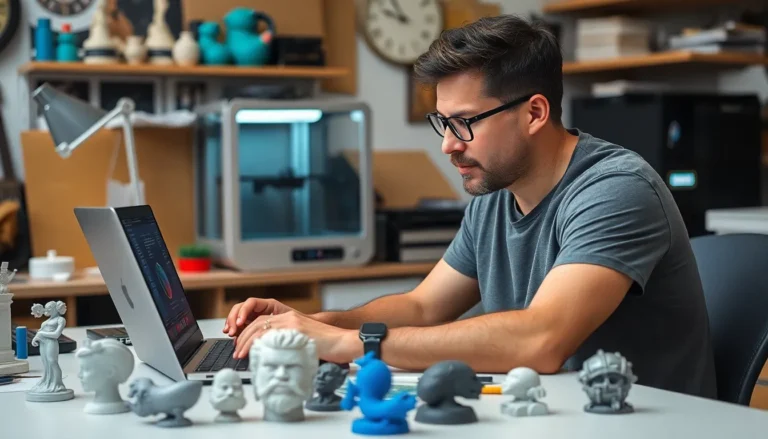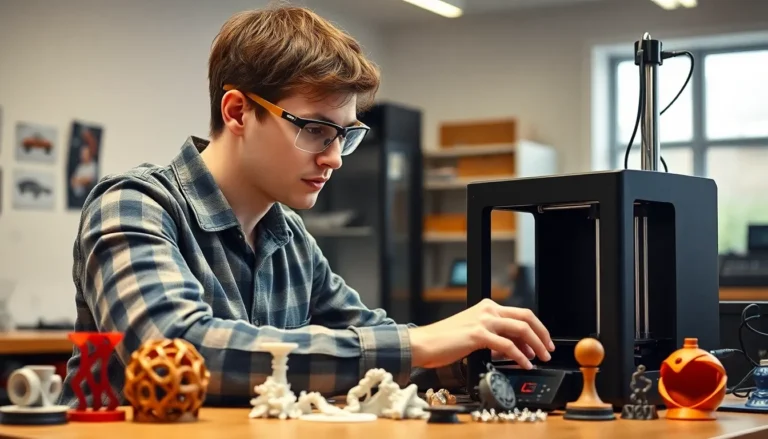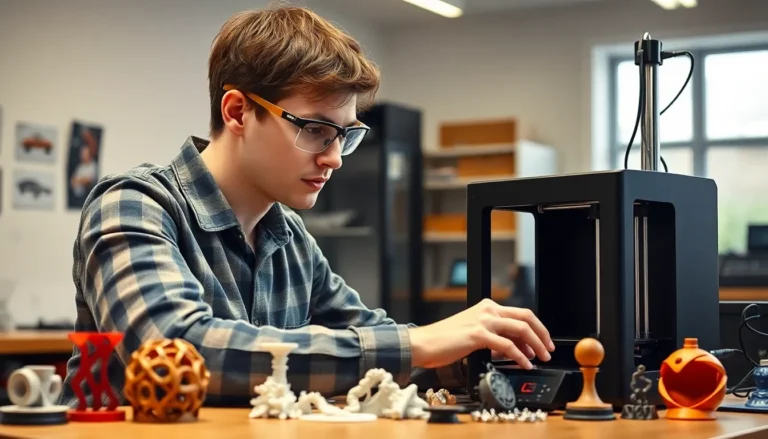Table of Contents
ToggleIn the fast-paced world of technology, hardware engineering internships are the golden ticket for aspiring engineers. Imagine diving headfirst into a world where circuits come alive and gadgets transform from dreams into reality. These internships offer more than just coffee runs and copying papers; they provide hands-on experience that can launch careers.
Overview of Hardware Engineering Internships
Hardware engineering internships provide essential experience for students and recent graduates. Such positions allow individuals to apply classroom knowledge to real-world scenarios.
Importance of Internships in Engineering
Internships play a critical role in engineering education and career development. Gaining hands-on experience enhances practical skills that theoretical learning often overlooks. Additionally, interns receive mentorship from industry professionals, fostering growth and networking opportunities. Securing an internship often sets candidates apart in a competitive job market. Many employers prioritize candidates with internship experience, as these individuals typically demonstrate familiarity with industry-standard tools and practices.
Types of Hardware Engineering Internships
Various types of hardware engineering internships exist to cater to diverse interests and skill sets. Research internships focus on advanced projects, encouraging innovation and problem-solving. Design internships involve creating and testing prototypes, providing a practical foundation in product development. Manufacturing internships emphasize production processes, exposing interns to supply chain dynamics. Finally, testing internships evaluate hardware performance, involving assessments and quality control measures. Each type contributes unique experiences, equipping interns with comprehensive insights into the hardware engineering field.
Skills Required for Hardware Engineering Internships

Aspiring hardware engineers need a blend of technical and soft skills to succeed in internships. Each internship offers distinct challenges that encourage the development of these competencies.
Technical Skills
Fundamental knowledge in electronics and circuit design is crucial. Understanding software tools like MATLAB, CAD, and PCB design programs greatly enhances problem-solving abilities. Familiarity with programming languages such as C, C++, or Python is often necessary for automation tasks. Experience in hardware prototyping using tools like Arduino or Raspberry Pi can set candidates apart. Engaging with simulation software allows interns to test concepts before real-world application. Knowledge of hardware testing methodologies is also valuable for ensuring product reliability and functionality.
Soft Skills
Strong communication skills facilitate collaboration with engineers and cross-functional teams. Problem-solving abilities enable interns to address challenges efficiently and creatively. Adaptability is essential when facing fast-paced project changes. Effective time management helps prioritize tasks amid tight deadlines. Critical thinking skills enhance decision-making processes throughout various project stages. A positive attitude reflects a commitment to learning and growth, making interns more desirable to employers.
How to Find Hardware Engineering Internships
Finding hardware engineering internships involves strategic approaches. Candidates can leverage various resources to discover valuable opportunities.
Online Job Boards
Online job boards serve as essential tools for identifying internships. Websites such as Indeed, Glassdoor, and LinkedIn feature numerous listings specifically for hardware engineering roles. Searching using targeted keywords like “hardware engineering internship” yields more precise results. Often, filtering options allow users to select internship opportunities only. Regularly checking these platforms provides the latest openings in different organizations. Staying updated helps candidates act quickly on new listings. Additionally, many job boards offer application tracking tools, assisting candidates in managing their applications efficiently.
Networking Opportunities
Networking opportunities significantly enhance internship prospects. Engaging in professional communities, such as IEEE or local engineering groups, opens doors to connections in the industry. Attending workshops, seminars, and career fairs allows candidates to meet hiring managers face-to-face. Many internships arise through word of mouth, emphasizing the importance of building relationships. Utilizing platforms like LinkedIn also fosters connections with professionals. Students should reach out to professors and alumni, who often have valuable insights and potential leads. Each interaction helps expand awareness of potential internship openings in the field.
Tips for Landing a Hardware Engineering Internship
Securing a hardware engineering internship involves strategic preparation. Candidates need to focus on their resumes, cover letters, and interview skills.
Resume and Cover Letter Tips
Highlight technical skills prominently in the resume. Show proficiency in electronics, circuit design, and software tools such as MATLAB and CAD. Tailor the cover letter to each internship opportunity, addressing specific requirements outlined in the job description. Mention relevant coursework or projects that demonstrate hands-on experience. Creating a professional format and ensuring clarity can make a strong impression on hiring managers. Use action verbs to describe experiences, ensuring a dynamic representation of accomplishments. Lastly, incorporate keywords from the job listing to help the application pass through applicant tracking systems.
Interview Preparation
Prepare for interviews by researching the company and its projects. Familiarity with recent developments in hardware engineering can significantly enhance discussions. Practicing common interview questions helps candidates articulate their skills and experiences confidently. Engaging in mock interviews with peers or mentors provides valuable feedback. Candidates should also prepare questions to ask interviewers, showing interest and initiative. Dressing appropriately reflects professionalism, while punctuality indicates respect for the interviewers’ time. Lastly, following up with a thank-you note demonstrates gratitude and reinforces enthusiasm for the opportunity.
Hardware engineering internships play a crucial role in shaping the careers of aspiring engineers. They provide invaluable hands-on experience and foster essential skills that go beyond academic learning. By engaging in real-world projects interns not only enhance their technical expertise but also develop vital soft skills that employers seek.
The journey to securing an internship may be competitive but with the right strategies and preparation candidates can significantly improve their chances. Networking and tailored applications can open doors to opportunities that lead to fruitful careers in hardware engineering. Embracing these experiences allows interns to build a solid foundation for their future in the tech industry.







